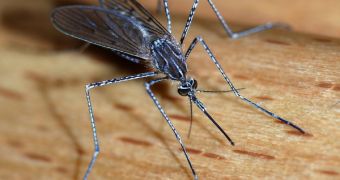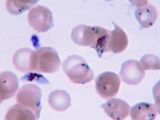Plasmodium vivax (P. vivax), the parasite that causes relapse in malaria, has been fully analyzed and all its components classified. Researchers say that understanding the parasite's genome could one day help doctors develop a more effective cure to the disease that threatens more than 2.5 billion people worldwide. Though other treatment options currently exist, they only treat manifesting forms of the disease, leaving the dormant virus to dwell in the liver until the proper conditions for its revival are met.
Scientists working with the National institute of Health (NIH) say that decoding the genetic make-up of the virus could open up three malaria research paths: the genetic variety of P. vivax, its resistance to drugs employed against it and the processes the viral agent undergoes before relapsing. Breakthroughs in these areas could put entire populations in Asia and Central America out of harm's way and may also provide a thorough vaccine, capable of completely eliminating the virus from its host.
With the decoded genome readily available, scientists now hope to finally be able to replicate P. vivax in a laboratory, to be used in extensive malaria research. This was impossible until now, as researchers were unable to grow the virus outside a host cell. P. vivax is different from P. falciparum, P. malariae and P. ovale, the other three types of Plasmodium that cause malaria in humans, in that it has genetic traits that makes it similar to other dormant viruses, such as yeast.
Jane M. Carlton, Ph.D., at the NYU Langone Medical Center, the lead investigator in NIH's study, said that identifying and understanding the mechanisms that allow P. vivax to remain dormant inside human livers may hold the key to generating medicine that could disrupt those processes, practically rendering the virus inert and harmless for hosts. This would mean that the risk of relapsing malaria would be negligible and that the disease, once eliminated in its blood form, would have no means of reinfecting the host.

 14 DAY TRIAL //
14 DAY TRIAL // 
